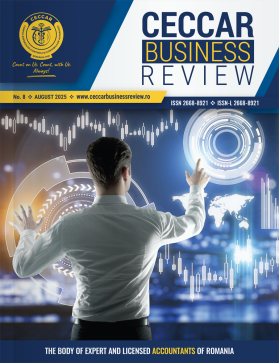
The Future of the Accounting Profession in the Context of the Digitalisation of Tax Administration
Number 7, July 2025 » Information management and technology
Abstract: This article analyses the impact of digital transformations on the activity and role of the professional accountant. Starting from the global context of tax digitalisation, the main directions and tools used in Romania are highlighted, such as the e-Invoice, SAF-T, and SPV platforms. The study emphasizes the major changes in the skills required of accountants, who must integrate digital and analytical skills to meet legal requirements and provide clients with strategic advice. Challenges related to the automation of repetitive tasks, the pressure of immediate compliance, and the need for investments in technology and professional training are discussed. At the same time, the paper presents the opportunities generated by digitalisation, including increased efficiency, expanded service portfolio, and strengthening of client relationships. The case study on the implementation of e-Invoice and SAF-T in a medium-sized accounting firm illustrates the adaptation process and practical benefits of digitalisation. Finally, the paper formulates conclusions and recommendations for accounting professionals, underlining the importance of continuous learning, technological investments, and the adoption of a consulting role in the new digital context. This transformation represents an opportunity for the profession to reposition itself and become an essential pillar in the modern financial ecosystem.
Classification JEL: M40, M41, M49, O33, H21 | Pages: 2-8
Statistics:
abstract views 35 |
PDF downloads 42 |
PDF views 17
(Copyright foto: 123RF Stock Photo)



